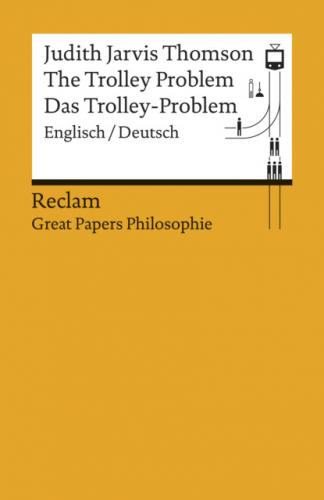On the other hand, suppose a second surgeon is faced with a choice between here and now giving chemical X to five, thereby killing them, and operating on, and thereby killing, only one. (It taxes the imagination to invent such a second surgeon, but let that pass. And compare Trolley Driver.) Then, other things being equal, it does seem he may choose to operate on the one. Some people would say something stronger, namely that he is required to make this choice. Perhaps they would say that
(II’) If a person is faced with a choice between doing something here and now to five, by the doing of which he will kill them, and doing something else here and now to one, by the doing of which he will kill only the one, then (other things being equal) he ought to choose the second alternative rather than the first
[90]is a quite general moral truth. Whether or not the second surgeon is morally required to make this choice (and thus whether or not (II’) is a general moral truth), it does seem to be the case that he may. But this did seem puzzling. As I put it: Why should the present tense matter so much?
It is plausible to think that the present tense matters because the question for the agent at the time of acting is about the present, viz. “What may I here and now do?,” and because that question is the same as the question “Which of the alternatives here and now open to me may I choose?” The alternatives now open to the second surgeon are: kill five or kill one. If killing five is worse than killing one, then perhaps he ought to, but at any rate he may, kill the one.
Конец ознакомительного фрагмента.
Текст предоставлен ООО «ЛитРес».
Прочитайте эту книгу целиком, купив полную легальную версию на ЛитРес.
Безопасно оплатить книгу можно банковской картой Visa, MasterCard, Maestro, со счета мобильного телефона, с платежного терминала, в салоне МТС или Связной, через PayPal, WebMoney, Яндекс.Деньги, QIWI Кошелек, бонусными картами или другим удобным Вам способом.
